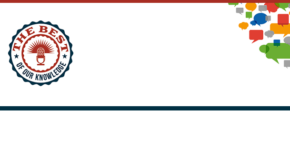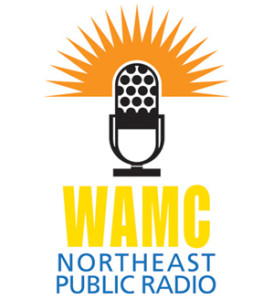 As always, host Bob Barrett selects an Academic Minute to air during The Best of Our Knowledge.
As always, host Bob Barrett selects an Academic Minute to air during The Best of Our Knowledge.
Each week this program examines some of the issues unique to college campuses, looks at the latest research, and invites commentary from experts and administrators from all levels of education.
For this week‘s edition (#1398), Bob has selected Amanda Hiner’s segment on teaching critical thinking. Dr. Hiner, Assistant Professor of English at Winthrop University, examines a few ways to get students thinking differently.

![]()
Dr. Amanda Hiner, Assistant Professor of English at Winthrop University, has taught graduate- and undergraduate-level courses in critical thinking, academic writing, and literature for over twenty years. She holds a Master’s Degree and a Ph.D. in eighteenth-century literature from Washington University in St. Louis and serves as the Coordinator for the Critical Reading, Thinking, and Writing Program at Winthrop University. Under her leadership, Winthrop’s critical thinking program achieved international recognition as one of only eight academic institutions formally affiliated with the Foundation for Critical Thinking in Berkeley, California.
Dr. Hiner has developed broad expertise in the field of critical thinking, publishing numerous articles on the application of the Paulian framework for critical thinking in both academic and professional contexts. She has served as an invited focal session speaker at the International Conference on Critical Thinking and Educational Reform; published numerous articles in the highly acclaimed critical thinking journal INQUIRY; published a textbook chapter on critical thinking and the techno-brain; and developed curricula and trained faculty members in critical thinking across multiple disciplines. Dr. Hiner has served as a sought-after consultant in critical thinking applications and strategies for diverse clients in the public sector and in universities and K-12 schools. She is currently writing a monograph on Paulian critical thinking strategies applied to literary analysis.
In addition to her work in the field of critical thinking, Dr. Hiner has published peer-reviewed articles on seventeenth-century women’s educational theorists; women and print culture in eighteenth-century England; distributive satire in the works of Henry Fielding and Eliza Haywood; and political satire in the works of Jonathan Swift and Delarivier Manley. She served as co-editor of the 2014 special topics issue of Journal for Early Modern Cultural Studies titled “New Approaches to Eliza Haywood: The Political Biography and Beyond,” and has written textbook introductions to anthologized works by John Henry Newman and John Donne.

